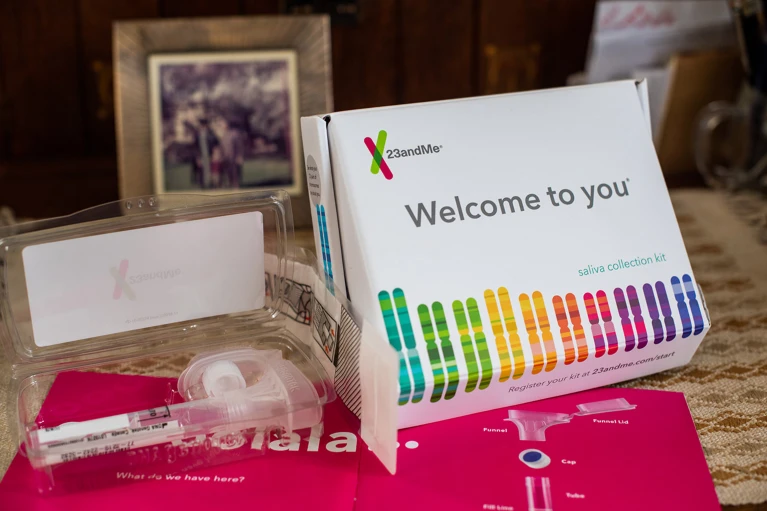Following the firm’s bankruptcy, researchers hope that they will still be able to access the valuable data set even if it is sold to new owners.
Once a darling of Silicon Valley, the consumer-genomics company 23andMe has filed for bankruptcy and legal permission to auction off its assets — including its vast database of DNA from around 15 million people worldwide, which has powered more than 250 scientific studies.
The move is prompting fears over how individuals’ genetic data might be used under new ownership, as well as uncertainty for scientists who work with 23andMe. But some researchers say that science could benefit if a buyer were to seize the opportunity to optimize access to data for research.
The potential sale represents a big moment for the consumer-genetics movement. “As far as I know, this is the most amount of genetic data that is potentially changing hands,” says bioethicist Anya Prince at the University of Iowa in Iowa City.
Researchers who use the company’s data to investigate the genetics underlying certain traits are hopeful that the new owner will continue to offer access to the information — one of the world’s biggest genomic data sets. “If a future buyer is not interested in research collaborations, it would be a great shame that the potential this data holds for human health advances would not be realized,” says geneticist Rachel Freathy at the University of Exeter, UK, whose planned collaboration with 23andMe into genetic links to birth weight and gestation length was cancelled in January because of company lay-offs.
Truth in saliva
23andMe, founded in 2006 in Sunnyvale, California, charges customers to extract and analyse their DNA from a mailed-in saliva sample. The analysis produces information about ancestry, family traits and potential health risks — and around 80% of customers consented to have their genetic information used for research. But in the past few years, the firm’s business model has faltered.
The 23 March announcement of the proposed sale prompted attorney-generals in several US states to issue ‘consumer alerts’ detailing how customers could download their data and delete their 23andMe accounts to safeguard their personal information.
Bioethicists say that it’s difficult to know how much of a risk the sale poses. “We don’t have to freak out yet,” says bioethicist Amy McGuire at Baylor College of Medicine in Houston, Texas. However, for customers who are uncomfortable with not knowing who will own their data, the safest option is for them to delete their accounts, she says.
One concern is that a change in ownership could give insurance companies or law-enforcement agencies access to customer data. Both are prohibited by 23andMe’s privacy policy, except when law enforcement has a search warrant, subpoena or court order.
23andMe says that the new owner must abide by the current privacy policy. But the policy also says the terms can be altered — so the new company “could have the power to change data collection in a way that people wouldn’t want”, says Prince.
A 2008 US federal law prevents health insurers from using genetic information to determine premiums, or how much people pay for coverage. But life insurers in some jurisdictions might use the data as a basis for increasing premiums for those at heightened risk of genetic disease. This practice is restricted in places including the United Kingdom and Florida, but not at the US federal level, says Prince.
Some fear that if law-enforcement agencies gained access to the database, they could search for matches to DNA samples taken from crime scenes, leading to people who have submitted their genetic information, or their relatives, being contacted or investigated as suspects. Such outcomes are worth taking seriously because the stakes are so high when it comes to these data, says Prince. “You can’t change your genetic code.”
23andMe says that the new owner can change how a customer’s data are used only with that person’s consent and that 23andMe will seek a buyer “who shares in its commitment to customer data privacy”.

